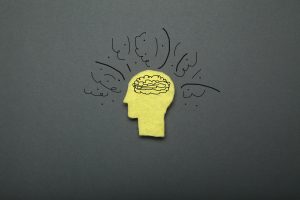You’re anxious about certain things and are a stickler for organization. You never thought it was a problem until a friend pointed out you’re spending way too much time doing this rather than that. Do you have anxiety or something else? The key to getting better is knowing what’s happening.
What Is OCD?
Obsessive-Compulsive Disorder (OCD) is a common, persistent, and long-lasting illness where you may have unruly, reoccurring thoughts (the “obsessions” part) and actions (the “compulsions” part) during which you have a strong desire to do over and over. The International OCD Foundation estimates that up to three million U.S. adults have OCD, plus about one-half million children. It’s a severe illness with dangerous consequences, but its symptoms can be managed with psychotherapy or medicine like ketamine.
What Is Anxiety?
It’s not unusual for someone to be afraid, anxious, or nervous about something. It could be a first date, moving into a new home, or starting a new job, but in time the uneasiness begins to fade on its own. That’s anxiety, a chaotic mix of feelings that temporarily throw you for a loop. But if these feelings last, get worse, and take control of your life, then you may be experiencing an anxiety disorder.
Know The Symptoms
Symptoms of anxiety may include:
- You feel nervousness, restlessness, tension
- Having a sense of looming danger
- You have a fast heart rate
- Breathing quickly
- Perspiration
- Trembling
- Weakness, fatigue
- Problems focusing
- Difficulties sleeping
Symptoms of OCD include obsessions and compulsions.
Obsessions:
- Fear of contagion or dirt
- Problems with uncertainty
- Urge for order and symmetry
Warning signs of compulsion may include:
- Repeated washing until your skin is raw
- Checking windows constantly to make sure they’re closed
- Checking appliances to ensure they’re off
- Counting in specific patterns
- Silently saying a prayer, word, or expression
- Storing canned goods to face the same direction
What’s The Difference Between OCD & Anxiety?
The most notable difference between obsessive-compulsive disorder and anxiety is that OCD has “earned” its diagnosis in the annals of psychiatric literature – particularly in the Diagnostic and Statistical Manual of Mental Disorders, Fifth Edition (DSM-5). There are specific criteria that someone experiencing OCD must meet to be diagnosed. In contrast, the prevailing standard with anxiety is that it’s a part of everyday living that comes and goes for most people. Suppose anxiety becomes a months’ long daily occurrence affecting your quality of life. In that case, you may be suffering from a specific and more serious disorder like generalized anxiety disorder (which gets its own classification in the DSM-5).
According to one definition, “Anxiety is a general term indicating anticipation of a future threat. Obsessive-compulsive disorder is related to anxiety disorders (such as panic disorder or generalized anxiety disorder), but it has its own definition.”
In some ways, you can almost think of someone with OCD as a “conspiracy theorist,” where the conclusion the person arrives at about something is so out of bounds of reasonable possibility that most people never take it seriously. There is, however, ongoing debate as to whether there should be such a precise dividing line from a diagnostic perspective between anxiety and OCD.
“Therefore, a diagnosis of major depression, an anxiety disorder, or OCD may make perfect sense in terms of the primary symptoms of which the patient complains, and on which a differentiated diagnosis is based, yet there may well be a common experience of anxiety and even dysphoria across the conditions, and of course recourse to the same drug or choice of drugs for treatment. In addressing why this overlap occurs, a common neurobiology seems the most obvious explanation.”
Diagnosis & Treatment
Diagnosing OCD or an anxiety disorder involves:
- A physical examination by a medical doctor. You may undergo tests and diagnostics to confirm or rule out whether a medical issue triggers symptoms.
- A psychiatric evaluation by a mental health specialist. You’ll discuss your symptoms in detail, plus talk about your feelings, thoughts, and behaviors. Your clinician may also ask if you have a personal or family history of mental illness.
- Comparing symptoms to criteria in the DSM-5.
Upon diagnosis of OCD or an anxiety disorder, you and your doctor will take appropriate treatment options, like ketamine or psychotherapy.
Final Thoughts
Besides having its own diagnosis, OCD is long-lasting and can have serious consequences, unlike anxiety, which generally goes away on its own. But if you have symptoms of either and worry you’re not getting better, contact your healthcare provider for a diagnosis. With time and care, you can recover from either.





